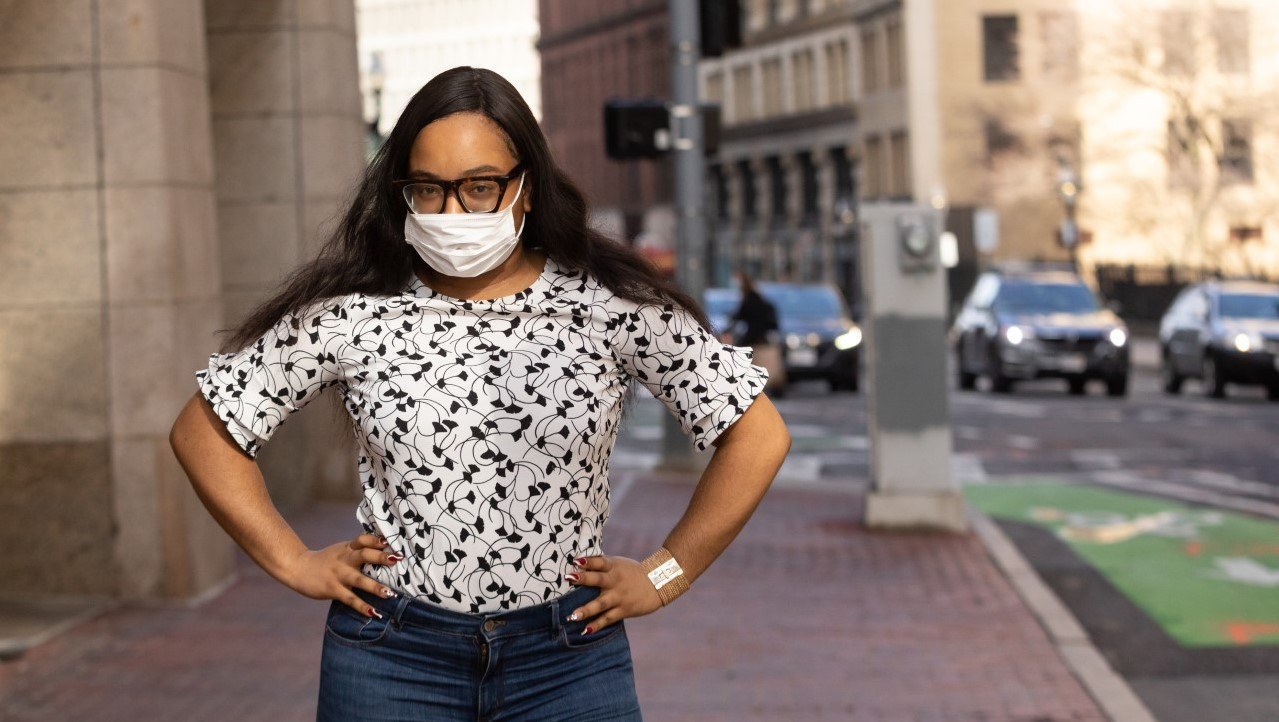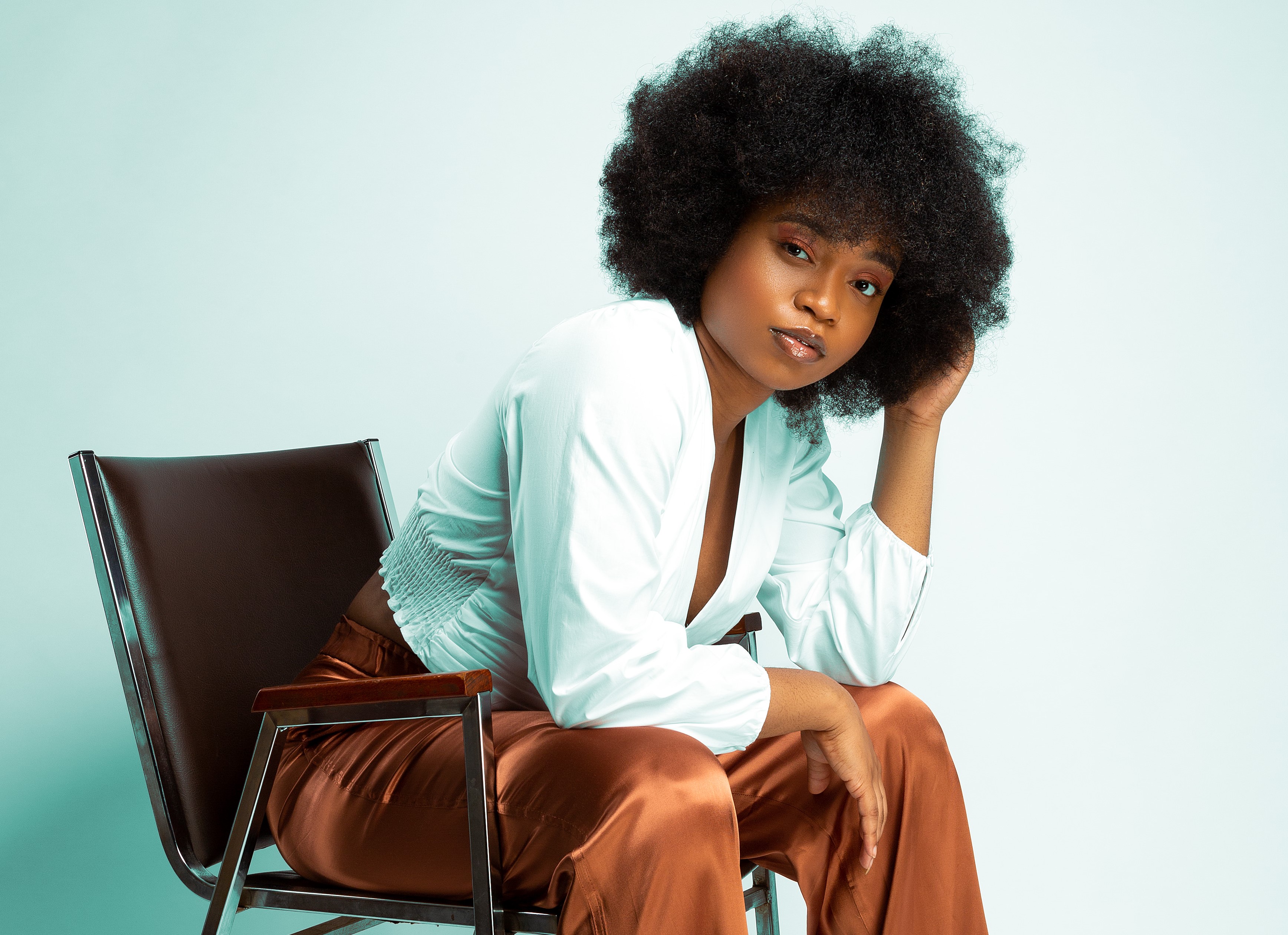Protecting Black Women College Students from 'Far-Right Misogynoir'

Alexandria Onuoha is a PhD student in Applied Developmental Psychology at Suffolk. Her work in the Youth Equity and Sexuality Lab explores the impact of far-right ideologies on Black woman college students. It’s a topic close to her heart.
Onuoha shared how coming of age in a divisive political climate and amid the emergence of the Black Lives Matter movement helped shape how she thinks about the college experience — and healthy adolescent development.
Q: How did you get started in your research?
A: I first noticed what I feel is a lack of protection for Black women college students as an undergraduate majoring in dance and psychology at a small liberal arts college.
I wrote an article called “Dancing Around White Supremacy” about [inclusion] issues in my program. That piece sparked a lot of conversation and led to institutional change that promoted the wellbeing of students of color.
Then, leading up to the 2020 presidential election, peoples’ true colors came out. I saw a lot of disgusting things directed toward Black women online. We would get more pushback than others for our comments, and that pushback would often include stereotypes.
Feminist scholar Moya Bailey coined the term “misogynoir” to explain the blend of racist misogyny directed toward Black women. I eventually realized I was seeing far-right misogynoir — which I define as a direct hate and prejudice towards Black women from far-right groups and individuals who want to eradicate a multiracial democracy, and will do so through violence digitally and in person.
Q: What are some of the harmful effects far-right attacks can have on Black women as they pursue higher education?
A: Everybody deserves an education free from hate and harm. College is a time to learn, have fun, and make lifelong friends.
But if institutions don’t take far-right ideologies seriously, Black women will always feel marginalized. If hate speech, violence, and online harassment are not punished, incidents will be reported less often. It’s also important to look at the attitudes and opinions that are amplified throughout campus. If more “palatable” forms of far-right speech that make marginalized students feel less safe are the norm, that’s harmful, too.
There are a lot of studies that show the academic success of Black women, and that’s great. But there are also studies that show that their experiences with exclusion and microaggressions impact their sense of belonging. If institutions aren’t checking racist and misogynist behavior — in person and online — it makes it much harder for students to grow and learn.
That’s why I’m doing a qualitative study in Suffolk’s Youth Equity and Sexuality Lab, looking at how far-right ideologies impact Black women college students and their mental health. After this project, I’m hoping to talk with different institutions and help them find strategies to support positive Black girlhood. If those of us at the margins can feel safe, then hopefully everyone can.
Q: How did you decide that psychology was the best path for you to make a difference?
A: At first I didn’t like psychology. While I recognized things I’ve experienced as a human, I didn’t see myself reflected as a Black woman until I started to take more specialized courses. Then I learned I can study things about my community in a scientific way that can impact change.
My senior thesis was on attitudes toward Black LBGTQIA+ individuals and whether religious commitment affects perceptions toward them. I became more and more interested in the Black women college experience.

Q: You mentioned “protection” — why is that a key component of campus diversity and inclusion efforts?
A: Diversity, inclusion, and equity are great social justice buzzwords, but protection is the action component.
It’s great to want diversity on campus, but what happens when something adverse transpires? Is there support for students of color and LGBTQIA+ individuals within your institution? What is going to make every student feel safe?
Q: You are part of a project with Suffolk’s Racial Equity and Justice Institute Campus Team this year. Describe that work and what you hope to learn.
A: This was a chance for me to get to know our undergrads. I want to really understand what students need.
I worked with a third-year student, using a study designed by [Psychology professor and chair] Amy Marks. We held focus groups with undergrads to find out what Suffolk does well and identify areas for improvement. We asked students whether they felt Suffolk values diversity and if they felt welcome.
After we do more focus groups, we will do data analysis and present to [VP of Diversity, Access, and Inclusion] Joyya Smith. We’ll also follow up with participants.
Q: What do you see as the biggest challenges and opportunities for higher ed institutions in truly carrying out their missions to create inclusive campuses?
A: Unlearning a racist system takes more than reading a book. But real changes are possible. We need to have compassion, listen to youth, and acknowledge anti-Blackness and the other axes of domination embedded in the system. We must create tangible things — events, programming, and policies — and involve students in that process.
Q: You were recently featured in The Boston Globe for your work as director of political advocacy for Black Boston 2020. Why is that work important to you?
A: Last May’s Black Lives Matter protest was one of the largest that’s ever happened in Boston. Black Boston decided they didn’t want it to be a moment, but a movement. I wanted to be part of that movement, through the 2020 election and afterward. I wanted to gain experience in policy because I’d like to see my research used toward advocacy and activism. I really want to be in the rooms where decisions are being made.
I didn’t have what people deem as political experience —now I do —but I knew what I had to offer was my passion, my drive, and my ability to be direct. My research experience and ability to think critically about issues helps, too.
Q: Do you have advice for students who want to engage in anti-racist work on their campuses?
A: I’m new to Suffolk and still learning how to get involved. Pay attention to your emails! And get in touch with the Diversity & Inclusion office — they have a plethora of opportunities for students to get involved.
Find your niche. Maybe you’re not the best speaker — maybe you’re an artist and you can be the person who designs an event flyer. Find what you can contribute and find your voice at Suffolk and beyond.
Contact
Greg Gatlin
Office of Public Affairs
617-573-8428
Andrea Grant
Office of Public Affairs
617-573-8410



